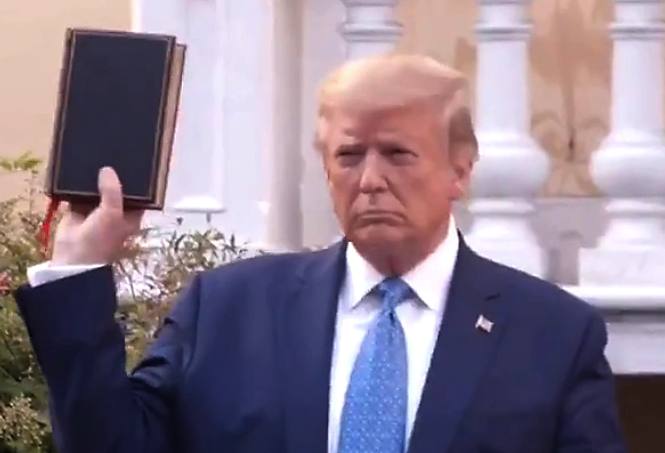A controversial memo issued by the Office of Personnel Management (OPM) under the Trump administration is raising red flags among legal scholars and employment attorneys, as it encourages federal employees to freely express their religious beliefs—including proselytizing—on the job. Critics argue the guidance blurs the line between religious liberty and coercive workplace behavior, especially when supervisors are involved.
The memo, authored by OPM Director Scott Kupor, represents a notable shift from Clinton-era guidance that, while permitting religious expression in the federal workplace, urged caution for supervisors whose speech might be perceived as coercive.
By contrast, the Trump administration document asserts that supervisors and non-supervisory employees should enjoy equal latitude in expressing their faith at work—an assertion legal experts say could expose the federal government to potential Title VII claims of religious harassment or hostile work environments.
A Legal and Cultural Pivot
“This memo moves from tolerating religious expression to actively encouraging it—even if others find it unwelcome,” said Gonzaga University law professor Dallan Flake. Legal experts say the shift coincides with broader trends following the Supreme Court’s decision in Groff v. DeJoy (2023), which raised the threshold employers must meet to deny religious accommodations.
While OPM’s guidance technically mirrors prior frameworks in permitting proselytization until a co-worker objects, the absence of caveats around supervisory conduct could have serious legal consequences.
“The failure to caution supervisors about how their comments can easily be misunderstood (or correctly understood) as demanding compliance is troubling,” Douglas Laycock, a professor of constitutional law at the University of Texas at Austin, told Bloomberg Law.
A Path Toward Broader Enforcement?
Employment law attorneys believe the memo could influence the Equal Employment Opportunity Commission (EEOC) and even private-sector enforcement. Fiona Ong, a partner at Ogletree Deakins, said, “Government agencies tend to float some of these things within the government first, and then it ends up being applied to the private workforce.”
In fact, the memo’s language encouraging federal employees to “persuade others of the correctness of their own religious views” may conflict with existing EEOC guidelines that treat workplace proselytizing as potentially disruptive or even discriminatory.
“It flips the protection from the person who doesn’t want to talk about religion to the person who wants to talk about religion,” said Brian Heller, partner at Schwartz Perry & Heller, LLP. That inversion, he added, increases the risk of hostile work environment claims from non-religious employees or those of minority faiths.
Concerns Over Selective Enforcement
The memo has also drawn criticism for appearing to prioritize certain religious traditions. Unlike the Clinton-era guidance that included references to Buddhism and Islam, the Trump administration’s OPM memo notably lacks examples from non-Christian faiths.
The Council on American-Islamic Relations (CAIR) expressed concern over what it called “selective enforcement,” citing the absence of references to Muslim religious practice.
“It is concerning that the policy mentions numerous examples of permissible activity, discussion and dress related to the Christian and Jewish faiths, but never mentions a single example related to Muslims,” CAIR said in a public statement.
Michael Ross of Alliance Defending Freedom praised the guidance, calling it “a critical step in restoring a workplace culture that respects and promotes religious freedom for every American.” But critics argue that the memo is part of a broader political strategy to appeal to the Trump base by promoting evangelical Christian norms in public institutions.
Post-Groff Legal Uncertainty
The memo’s timing, following Groff v. DeJoy, adds another layer of complexity. That ruling, which made it harder for employers to deny religious accommodations without demonstrating significant hardship, has already prompted lower courts to reassess employer obligations.
Baruch College professor Debbie Kaminer warned that increased accommodation rights may place undue burdens on coworkers. “With this memo, it’s co-workers who are now going to be subject to proselytizing in the workplace,” she said.
James Nelson, a law professor at the University of Houston, noted that the policy creates a constitutional tension:
“I certainly see the Trump administration and other litigators wanting to go to the maximum on favored treatment within legal constraints.”
The OPM memo may be setting the stage for a clash between First Amendment rights and Title VII protections. With the EEOC likely to revisit its stance on religious speech in the workplace, employers—both public and private—must prepare for heightened legal scrutiny surrounding religious accommodations, proselytizing, and supervisor-employee power dynamics. The ultimate legal test will likely come through a growing docket of religious discrimination cases that challenge the balance between personal liberty and workplace inclusivity.

